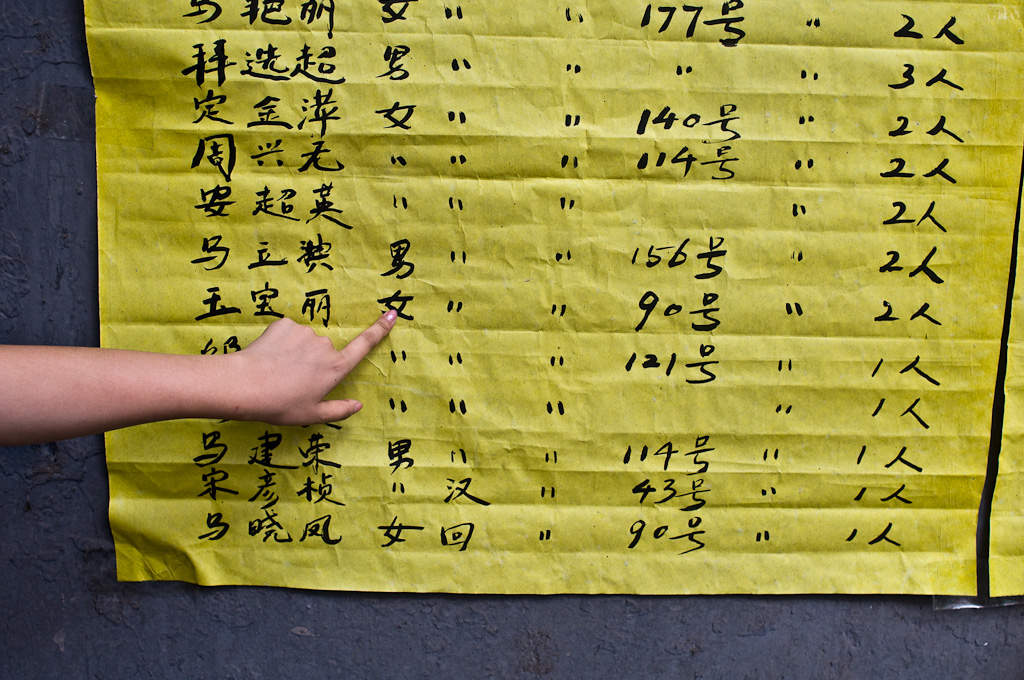Straight out of college I spent 6 months signing on for unemployment benefit – breathing space before entering the job market. In the intervening years I suspect I’ve paid my dues but back then who would predict then if I ever would? Living in one of London’s poorer boroughs – Hackney and signing on at the dole office was not the bright spot of the week, and neither was it designed to be with enough money for food and housing, but certainly not enough to be part of what (most people) consider to be society. Many of you reading this will share this perspective.
Which is what makes this cultural artifact from an evening spent in Xi’an’s Muslim quarter so interesting: a poster that details which families from the neighbourhood are considered by the state to be poor enough to warrant additional financial support. What does it say about my own culture that there is a strong social stigma associated with having your family name appearing on this list? And yet here it is – in this context not only accepted i.e. not defaced, but acceptable – formal recognition that some families are more deserving than others.
Shuffling one or two steps into the future perfect – to what extent will our cultural norms be challenged and reinforced by the availability of data streams that are currently outside the control of most ‘consumers’? What happens when, in your social circle it becomes the norm to reveal abstractions of your purchasing behaviours – data points bubbling up into Facebook profiles and status updates? Think Mint or state benefits extrapolated by Stamen and overlaid onto people and places.
Who will want to extenuate their expenditures or that they are deserving of hand-outs, and who will not?

